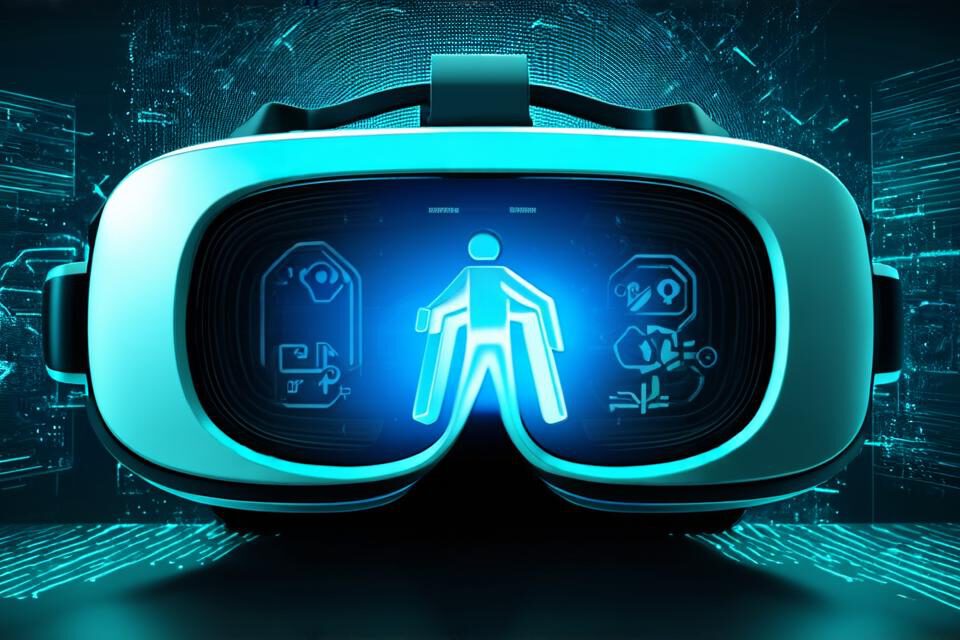How does virtual reality impact cognitive development?

Virtual reality (VR) technology has been around for several years now and has gained significant attention in recent times as it continues to evolve. With the advancement of VR, people have started exploring its potential impact on cognitive development. This article aims to explore how virtual reality affects cognitive development by analyzing research, case studies, and personal experiences.
Introduction
Virtual reality technology allows individuals to experience a simulated environment that mimics real-life scenarios. VR has been used in various fields such as gaming, education, and healthcare. It’s a powerful tool that can help people develop cognitive skills and enhance their learning experience. This article will examine the impact of VR on cognitive development by analyzing research, case studies, and personal experiences.
Cognitive Development Defined
Cognitive development refers to the mental processes involved in learning, problem-solving, memory, attention, and perception. Cognitive development occurs throughout a person’s life, from infancy to adulthood. It’s a critical aspect of a person’s growth and development that helps them become successful in their personal and professional lives.
How Virtual Reality Impacts Cognitive Development?
Virtual reality technology has the potential to impact cognitive development positively. Research shows that VR can enhance cognitive skills such as memory, attention, and problem-solving abilities. Here are some ways VR impacts cognitive development:
- Memory Enhancement
Virtual reality technology offers a unique experience that can help improve memory. Studies have shown that individuals who use VR to learn new information retain the information better than those who use traditional learning methods such as books and lectures. This is because VR provides an immersive experience that engages multiple senses, allowing individuals to remember information more vividly.
2. Attention Enhancement
Virtual reality technology can help enhance attention by providing a highly engaging environment. VR allows individuals to focus on one task without any distractions, leading to better concentration and retention of information. Research has shown that individuals who use VR for learning tasks show improved attention compared to those who use traditional methods.

3. Problem-Solving Abilities
Virtual reality technology can enhance problem-solving abilities by allowing individuals to practice in a safe environment. VR offers a controlled environment where individuals can experiment and make mistakes without any real-world consequences. This allows individuals to develop critical thinking skills, creativity, and problem-solving abilities that are essential for success in their personal and professional lives.
Case Studies
Virtual reality technology has been used in various fields such as education, healthcare, and gaming. Here are some case studies that illustrate the impact of VR on cognitive development:
- Education
Virtual reality technology has been used in education to enhance learning experiences. For example, students can use VR to explore historical events or simulate scientific experiments. A study by the University of Maryland found that students who used VR to learn about the solar system had better recall and understanding of the material compared to those who used traditional methods.
2. Healthcare
Virtual reality technology has been used in healthcare to treat conditions such as PTSD, phobias, and anxiety disorders. VR provides a safe environment for individuals to confront their fears and overcome them. A study by the University of Oxford found that individuals who used VR to treat PTSD showed significant improvements in symptoms compared to those who used traditional methods.
3. Gaming
Virtual reality technology has been used in gaming to create immersive experiences that engage players. Games such as Beat Saber and Tilt Brush have been used to enhance cognitive skills such as memory, attention, and problem-solving abilities. A study by the University of California, Irvine found that individuals who played VR games for 30 minutes showed improved cognitive performance compared to those who did not play any games.
Personal Experiences
Virtual reality technology has been used in various fields such as education, healthcare, and gaming. Here are some personal experiences that illustrate the impact of VR on cognitive development: